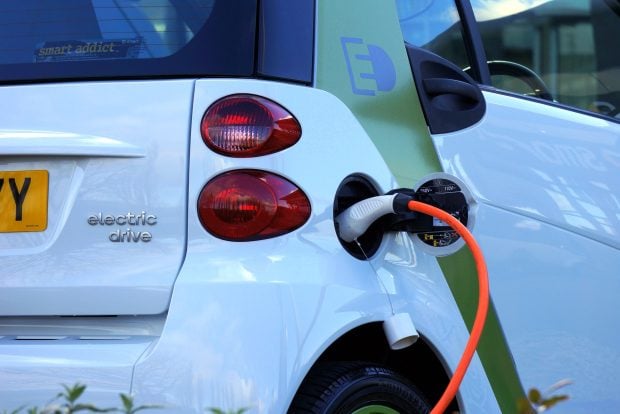G20 fuel subsidy cuts agenda weakening, despite Latin American progress

The G20’s members promised nearly a decade ago to phase out fuel subsidies, and several Latin American countries have taken a political hit to advance the agenda. But the agenda failed to make headway at the body’s Hamburg summit, finds Gavin O’Toole
Following US president Trump’s decision to withdraw from the Paris Agreement, other leading countries emphasised their continued commitment to tackling climate change. But there are already signs of a weakening in nations’ efforts, and earlier this month the G20 Hamburg summit’s communique failed to mention the body’s fossil fuel subsidy reduction target – despite major efforts among the G20’s Latin American members to cut their support for subsidies.
The Hamburg summit’s failure to set a deadline for ending support worth more than US$60bn (£47bn, €53bn) per year in the OECD area alone – and US$200bn within the BRIICS nations – is a setback for policymakers in Brazil, Mexico and Argentina, who have all taken politically risky steps to reform subsidies since last year.
The G20 promised in 2009 to phase out fossil fuel subsidies amongst its members, and an unprecedented coalition of investors, insurers and non-state actors have called on it to set a 2020 deadline. Last year the G7 set a deadline of 2025 for ending subsidies, and other bodies such as the OECD and World Bank have added to calls for action.
Public finance is a key element of global energy investment – during 2013-15 the G20 countries and multilateral development banks invested US$122.9bn annually in energy, according to a consortium of green groups – and curbing this support is seen as critical for tackling climate change.
Rising oil prices before 2014 led to rapid growth in subsidies, as set out in the OECD’s latest Green Growth Indicators. Subsidies are high in many Latin American countries, where governments use them to keep prices low for the poor; the IMF puts the region’s subsidy bill at about 3.8% of GDP on average in 2011-13. In Brazil, for example, one measure of subsidies for consumers soared during 2005-14 by more than 7,000%.
When the cost of damage from pollution and climate change is factored in, the IMF has estimated that fossil fuel support globally amounts to a staggering US$5.3trn a year. According to the OECD, direct and indirect support for fossil fuel production and consumption exists through up to 800 individual instruments – from regulations keeping prices below market levels, to tax deductions on investment in oilfields.
Subsidies are considered problematic for both economic and environmental reasons. Economists agree that they strain government budgets by increasing public expenditure and reducing tax revenue. Venezuela, for example, spends about US$20bn on fossil fuel subsidies each year – about 6% of its GDP.
Subsidies also encourage excessive energy use, and perpetuate inefficient technologies and behaviour that ultimately reduce competitiveness and limit growth.
Perhaps most importantly, fossil fuel subsidies undermine efforts to tackle climate change: the International Institute for Sustainable Development (IISD) is among bodies arguing that ending production subsidies would reduce greenhouse gases by 37Gt of CO2 over 2017–50.
If combined with green taxation, the removal of fuel subsidies could yield what has been described as a fiscal “triple win” for economies – with governments saving money, meeting sustainable development goals, and tackling climate change. But governments must also protect the poor from abrupt rises in fuel prices, and ensure that greener energy sources are available to avoid damaging their economies.
Subsidies were an important driver of fiscal deficits and in recent years, falling oil prices have created an opportunity for reform – allowing governments to whittle away subsidies without pushing up fuel prices. As oil prices have declined since 2014, subsidies have risen up the agenda, and in 2015-16 about 50 countries undertook some sort of reform. Since 2016, Brazil, Mexico and Argentina have all taken steps to align pump prices with international levels to shore up government budgets.
In Brazil, the government has repeatedly succumbed to a temptation to adjust fuel prices as a way of meeting inflation targets through its controlling stake in the semi-state oil corporation Petrobras. But deepening fiscal problems have generated irresistible pressure to reform budgetary support and tax expenditure on fossil fuels of about US$20bn in 2014, and in late 2016 Petrobras freed prices to reflect global market levels.
In Mexico, where subsidies amounted to US$5.8bn in 2015, energy reforms since 2013 have been ambitious. The country started liberalising gasoline, diesel and LPG prices in January this year, pushing up costs for consumers by as much as 20%.
In Argentina, where subsidies amounted to US$10.5bn in 2015, there have been successive fuel price rises since the conservative Mauricio Macri came to power at the end of that year.
However, subsidies have endured in Latin America because energy policy is politically sensitive and reforms risk unrest.
In Mexico, for example, January’s fuel price increase sparked violent protests called the gasolinazo, and energy reform is one reason why the approval rating of the Mexican president, Enrique Peña Nieto, sank to record lows.
In Argentina, the removal of gas subsidies sparked protests in July 2016 after a cold winter sent energy bills soaring, and in August the country’s supreme court overturned the move.
For up to date government news and international best practice follow us on Twitter @globegov
See also:
Falling commodity prices must prompt reforms in Latin America, says OECD executive





















